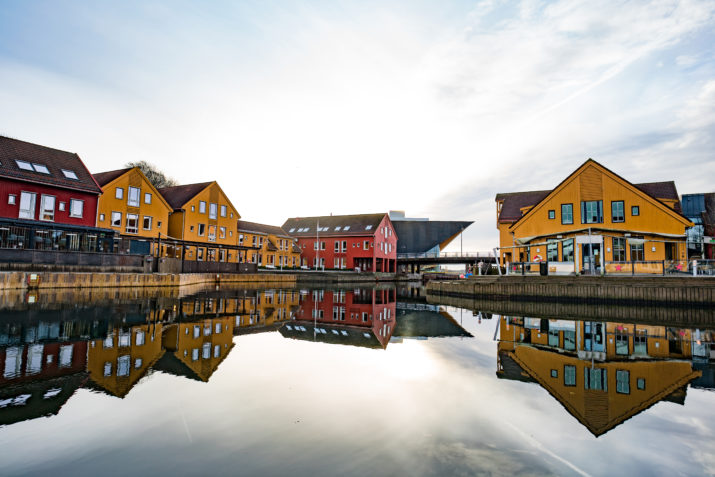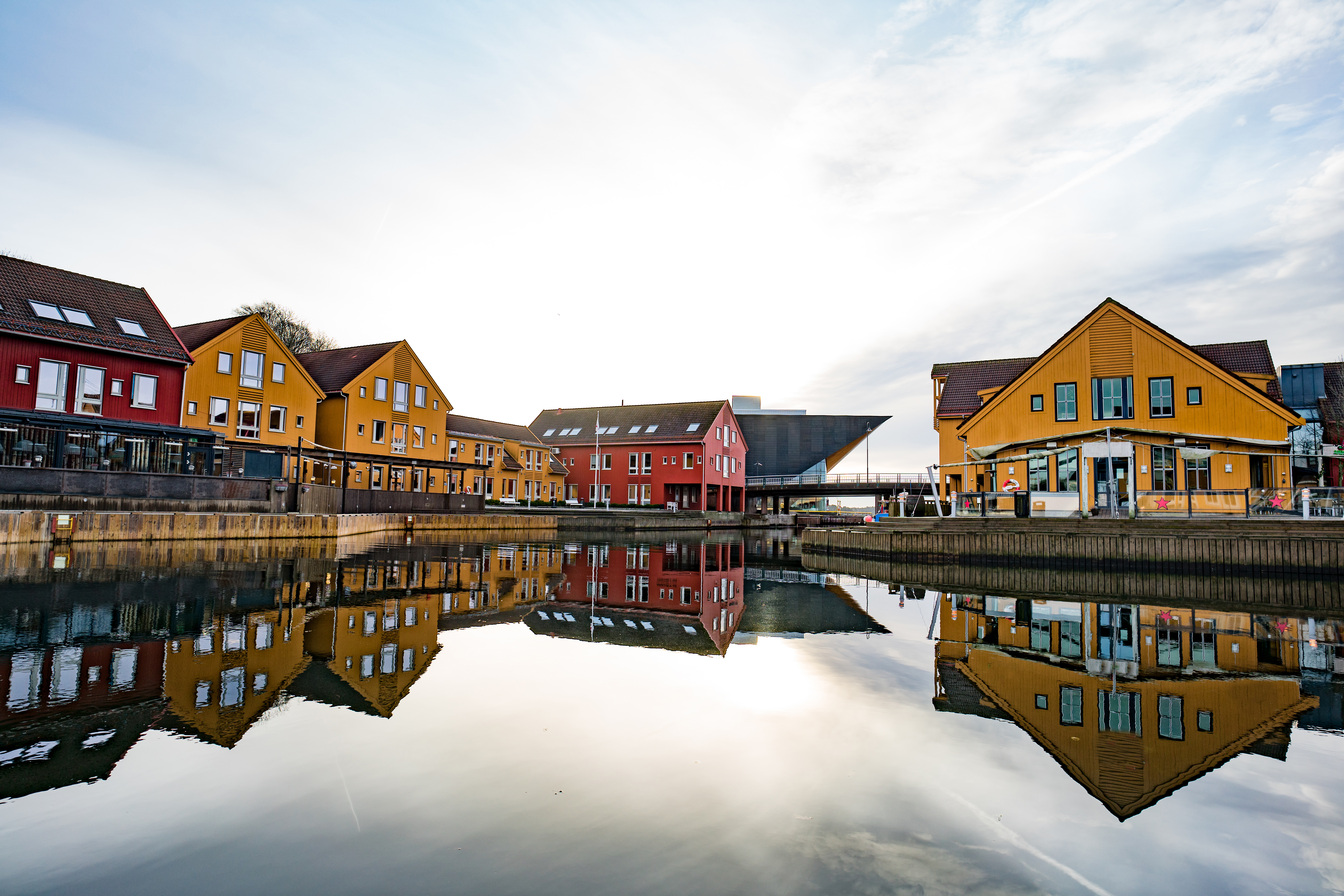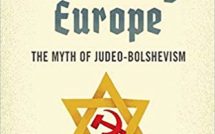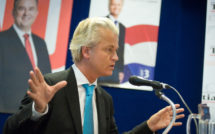

The myths about right-wing populism and neoliberalism
“Populism is the name of a global phenomenon whose definitional precariousness is proverbial,” notes Nadia Urbinati in a recent review article (Urbinati 2018). A central tenet of political science literature about the rise of right-wing populism in Europe and the US in the past decade (Müller 2016: 19-21, Mudde and Kaltwasser 2017: 5), has been that populism—whether right or left—is characterized by an inherent “anti-elitism.”’ This has also led to the adoption of the attendant view that populism is antithethical to neoliberalism. Norway’s experience of having populist right-wingers in government since 2013 demonstrates why this is a mistaken view. Right-wing populism may be opposed to sections of society with high levels of cultural capital, but they have in the Norwegian context proven extremely useful for financial elites. So much so that the Norwegian strand of right-wing populism may in fact more appropriately be referred to as a form of plutocratic populism. This indicates that neoliberalism may not only have provided the very conditions conducive to the emergence of right-wing populism, but may in fact also be instrumental for neoliberalism (Mazarella 2019).
The rise of the populist right in Norway
It was after a period of forty years in the political wilderness that the populist right-wing Progress Party entered government for the first time in Norwegian history after the parliamentary elections of September 2013. The party’s entering government in 2013 in fact had little to do with its election result that year—which by the standards of the preceding record-breaking parliamentary elections of September 2009—was modest. The Progress Party came to power through the offices of a Norwegian Conservative Party whose strategic advisors had already concluded in 2009 that the only way in which the Conservative Party would get back into power after three successive center-left governments led by the social democratic Labor Party which had dominated Norwegian politics since 1945 (Sejersted 2011), was to form a strategic alliance with the Progress Party.
Under the direction of the conservative and corporate billionaire-funded think-tank Civita in the Norwegian capital of Oslo, the four-year period between 2009 and 2014 saw intense attempts at creating and sustaining this nascent strategic alliance spearheaded by the former Conservative Party cabinet minister and director at Civita, Kristin Clemet. It was an alliance between what had hitherto widely been seen as strange political bedfellows. For the Progress Party, founded in 1973 by the libertarian maverick and supporter of the racist apartheid regime in South Africa (1948-1990), Anders Lange as the Anders Lange’s Party(ALP) as a party against taxation and bureaucracy, was a party widely known for having attracted many political oddballs over the years. Furthermore, its voters were among the least resourceful and least educated in Norway, whereas the Conservative Party has long had the most educated and resourceful voters of any party in Norway.
But the grounds for such a strategic alliance had in fact been laid decades earlier, when the former corporate director of a sugar company in Norway, Carl Ivar Hagen, imposed his strong will on the Progress Party upon Anders Lange’s death in 1977, renamed the party as the Progress Party, moved towards the center with regard to welfare state policies, and made opposition to immigration in general and opposition to Muslim immigration in particular, the central plank of the party’s electoral platform from 1987 onwards (Bangstad 2014). It was the virulence of the Progress Party’s political rhetoric on immigration and integration, and its periodic toying with the Norwegian far-right, which led other mainstream Norwegian parties—including both the social democratic Labor Party and the Conservative Party which had been the dominant political formations of the post-World War II era in Norway—to place a proverbial cordon sanitaire around the Progress Party until 2009.
The very ground of the political center in Norway had shifted: available studies suggested that both the Conservative Party and the Labor Party shifted policies on immigration and integration rightwards in response to the rise of Progress Party in the 1990s and 2000s. Anyone familiar with opinion surveys on immigration and integration in Norway in the 2000s would have been able to note the fact that in spite of all their other political differences; Progress Party and Conservative Party voters held remarkably similar views on immigration and integration. In a recent and important contribution, Sivamohan Valluvan (Valluvan 2019) has brought renewed attention to this. It is if anything, exclusionary nationalism—whether right, left or center—is central to contemporary forms of “nationalist populism.” And the central and increasingly racialized “other” of the ‘nationalist populism’ which by 2009 had proven so attractive to both the Progress Party and the Conservative Party was of course the proverbial Muslim. Who was by then widely cast as an existential threat against not only the welfare state, but also against gender equality (Farris 2018), freedom of expression and democracy.
The Progress Party in government 2013-2019
It was therefore not much of a surprise to learn that the formation of the most right-wing government in Norwegian history since World War II in 2013 entailed a practical division of labor, in which the Progress Party would be granted full control over integration and immigration policy, whereas the Conservative Party would have practical (if not nominal, since the Norwegian Minister of Finance since 2013 has in fact been Progress Party chairperson Siv Jensen, albeit with very influential cabinet secretaries appointed by the Conservative Party) control over fiscal policies. This division of labor has meant: 1) Norway now has an unprecedentedly restrictive immigration policy; 2) Norway has in the face of protests from Afghan authorities become something of a European leader in forced deportations of Afghan unaccompanied minors (Bangstad 2019); and 3) the Norwegian government actively funds, legitimates and sustains virulent forms of far-right hate speech over the state budget through its longstanding funding of an outfit known as Human Rights Service (HRS) in Oslo (Bangstad and Helland 2019). Furthermore, since 2013 Norway has seen: the introduction of unprecedented cuts in the inheritance taxes for Norway’s wealthiest five percent; increased socio-economic inequalities (Akerbæk and Karlsen 2017); an increasing racialization of poverty whereby the children of immigrants are much more likely to grow up in relative poverty deprivation than other children; and none-too-subtle government attempts at dismantling social welfare provisions in various fields for the most vulnerable, sick and disabled Norwegian citizens.
In a still ongoing scandal, it has recently been revealed that the enormous state-controlled bureaucratic apparatus tasked with administering social welfare provisions in Norway—NAV (McKowen 2019)—has for well over a decade been responsible for sending a number of innocent Norwegian citizens to prison for alleged welfare fraud—simply because neither the government nor the NAV bureaucrats were able to interpret EEC rules correctly. The oversight mechanisms of the Norwegian courts also failed spectacularly, as Norwegian lower courts simply rubberstamped bureaucratic decisions of NAV, and sent at least 38 innocent people to prison for welfare fraud until a specialized court started questioning the legal interpretation as late as 2017. Though this appears to have happened under successive Norwegian governments and maybe as early as in the 1990s, it is apparent that a Norwegian right-wing government extremely keen on slashing welfare state expenditure has neither taken welfare court warnings about this dating back to 2017 very seriously, nor tried to ensure that grave miscarriages of justice were carried out under their watch. In the same period, a public discourse centered on stigmatizing poor and disabled working-class Norwegians as potential “welfare frauds”—in a similar manner as documented for the UK by Owen Jones (Jones 2016) became central, and Norwegian mainstream media uncritically portrayed the high-earning female director of NAV, Sigrun Vågeng, who earns more than Norwegian PM Erna Solberg, in a heroic posture as a woman dedicated to exposing “welfare cheats.”
The corporate funded “alternative media”
But it is arguably in the emergence of far-right and Islamophobic media outlets funded by Norwegian corporate billionaires sympathetic to the Norwegian right-wing government that we find the most telling indication as to why having right-wing populists in power may be instrumental for societal actors committed to the furthering of neoliberal agendas (Slobodian 2018). Human Right’s Service (HRS) in Oslo, which specializes in instrumentalizing hatred of Muslims in Norway, established in the not entirely co-incidental year of 2001, has since its founding enjoyed various forms of financial support from one of Norway’s richest men, namely the property tycoon and hotelier Olav Thon. HRS first entered the state budget in 2001 on the initiative of one of the most far-right politicians of the Progress Party in Norway, Christian Tybring-Gjedde, an MP from upper-class Oslo West, in 2001, and has remained loyal to the Progress Party ever since. In Tybring-Gjedde’s circle of friends, there are, given his upbringing in an upper-class and overwhelmingly white social milieu in Oslo West as a corporate billionaire heir, quite a number of wealthy investors. Tybring-Gjedde was also a central figure in a group which was entitled “Friends of Document.no.” This was a group known to have raised substantial funds for Document.no. Established by the self-declared “Christian conservative” editor Hans Rustad in 2001, Document.no after the right-wing extremist terror attacks of one Anders Behring Breivik on 22 July 2011 became known as Breivik’s favorite media outlet (Bangstad 2014).
In 2017, the one-time political scientist and military man Helge Lurås, established an online website known as Resett. Lurås had until then been best known in Norway for having spent most of the afternoon of 22 July 2011on air at the state broadcaster NRK declaring that what turned out to be another right-wing extremist terrorist attack in Norway was the work of al-Qaida. After it became clear and undeniable that a Norwegian right-wing extremist was behind the attacks, Lurås subsequently appeared on Russian propaganda channel Russia TV in order to declare that an hitherto non-existent Norwegian “multiculturalism” was to blame for Breivik’s terrorist attacks. Resett, which has repeatedly been denied membership of the Norwegian Press Association due to its editor’s incredibly poor understanding of basic media ethics, soon turned out to specialize in orchestrated social media campaigns against anyone daring to speak out in favor of Norway as a multicultural society, and against Islamophobic vitriol from governing Progress Party cabinet ministers.
Particular opprobrium was lavished on a very young and talented Norwegian-Somalian poet and public intellectual, Sumaya Jirde Ali (20) for speaking her mind about the regular rhetorical antics of cabinet minister Sylvi Listhaug, who was rightly dubbed “Norway’s Trump” (Engelstad 2018). Through concerted efforts through Resett, Lurås made sure that she would receive both excessive amounts of hate mail and messages, including death threats. The racial and Islamophobic harassment of Jirde Ali which resulted from Resett’s regular rage-baiting posts about her has, to date, led to at least one hate crime conviction. Resett has been funded by a group consisting mostly of government-supporting corporate billionaires mainly from Oslo West (Nordseth and Skybakmoen 2019). They include Christian Mikkel Dobloug (39), Jon Haudemann-Andersen (60) and Håkon Wium-Lie (53).
Asle Toje is the intellectual alibi of the populist right in Norway. He is a Cambridge-educated political scientist who was appointed by the Progress Party to the Norwegian Nobel Peace Prize Committee. He is also linked to the group of corporate billionaires behind Resett through his personal friendship with the Resett and HRS investor Christian Mikkel Dobloug. Toje is known for having recommended far-right and identitarian racist literature (Jean Raspail’s novel Camp of the Saints) in the context of the so-called “European migration crisis” of 2015 (Toje 2016). Norwegian mainstream media, by and large completely oblivious to the far-right intellectual lineage of identitarianism, have provided Toje with lavish and uncritical media platforms for over ten years now.
When an independent theater group staged a play entitled Ways of Seeing, inspired by the work of the art critics John Berger, Aimé Césaire and Frantz Fanon, in which they named some of these investors, alongside the Progress Party’s Christian Tybring-Gjedde and Progress Party cabinet minister Tor-Mikkel Wara, death threats against the theatre actors quickly ensued. Politicians and activists affiliated with the Progress Party played central roles in whipping up public and media sentiment against the director and the actors for having allegedly created conditions for a series of threatening incidents near the home of the Progress Party’s then Minister of Justice Tor-Mikkel Wara. Not only Norwegian Conservative Prime Minister Erna Solberg, but also liberal-conservative newspaper editors supportive of the government such as Aftenposten’s Harald Stanghelle, joined in the chorus of public condemnation against the crew of Ways of Seeing.Tybring-Gjedde MP called for the defunding of Black Box Theatre in Oslo, which had staged the play.The momentum created by the uncritical media coverage of the case resulted in any number of political opposition leaders feeling impelled to call for “solidarity with Wara and his family” on their social media accounts. But the opprobrium soon evaporated like thin air once it became clear that the Norwegian Police Security Service (PST) had arrested and charged Wara’s female partner on suspicion of having fabricated all of the incidents outside the Wara family home on Oslo West. The crew of Ways of Seeing had suspected as much after Wara’s female partner had turned up and filmed the play in one of their first performances at the Black Box Theatre. Wara was forced to resign as a Minister of Justice (Reuters 2019), but to date there has been no apologies whatsoever from the Norwegian Conservative Prime Minister Erna Solberg or from her lib-con media supporter Harald Stanghelle after their inappropriate insinuations and unseemly attacks on freedom of expression.
The case of Kristiansand
The municipal elections in the southern Norwegian city of Kristiansand—Norway’s fifth largest —provides the clearest case for the role that corporate interests have played in shifting Norwegian politics decidedly to the right. In the municipal elections of September 2019, the far-right fringe party Demokratene obtained a record 13.4 percent of the votes and ten representatives on the city council. Demokratene had been established by the one-time Progress Party MP (1989–1993 and 1997–2001) and vice-chairman of the Progress Party from 1995 to 1999, Vidar Kleppe (1963–) in 2002. Kleppe had been suspended from the Progress Party in 2001 over suspicions from the all-powerful party chairman Carl Ivar Hagen (1979-2006) that he had designs on the leadership role in the party. Kleppe was to the far-right in the Progress Party on matters relating to immigration, and was interestingly enough accused by Hagen of being “a populist” [sic]. The city of Kristiansand is in the so-called “Bible belt” of Southern Norway, an area where conservative strands of Christianity remain very strong, and where patriarchal attitudes are widely held. Since the 1980s, these are also areas in Norway that have been strongholds for the populist right-wing Progress Party. Not all conservative strands of Christianity in Norway are equally negative towards Islam and Muslims, but anti-Muslim attitudes are certainly widespread in the Kristiansand area and it is one of the strongholds of the far-right and racist organization “Stop the Islamization of Norway” (SIAN) (Bangstad 2016), established in 2008 by Arne Tumyr, and Vidar Kleppe’s Demokratene has for a long time had close contacts with SIAN.
Key to the remarkable successes of Demokratene in Kristiansand in the municipal elections of September 2019 was the local corporate millionaire Einar Øgrey Brandsdal (43) from the family firm Brandsdal Group Inc. Brandsdal first came to public attention in Kristiansand in 2007 when he proposed that the municipality of Kristiansand should erect a gigantic statue of Jesus modelled after the Corcovado statue in Rio de Janeiro, Brazil. Brandsdal has made great fortunes on online retail sales of beauty products to Norwegian consumers. His company has 160 employees, and a turn-over of over one billion Norwegian kroner per year. Brandsdal’s estimated personal wealth is well over 800 million Norwegian kroner. Brandsdal has named “Jesus and my grandfather” as his “main heroes” and is adamantly opposed to property taxes and maternal leave benefits in Norway. When Kristiansand’s city council in 2018 decided that an old corn silo at Kristiansand’s port at Odderøya would be turned into an art museum, Brandsdal, decided to fund and edit a fake news website entitled Sørlandsnyhetene. Brandsdal’s corporate group had their own design on the potentially lucrative property asset. In the period from February 2018 to September 2019 it published serial attacks on high-profile politicians and businessmen in Kristiansand which would fail any standard test of media ethics (Cantero, Ditlefsen and Isungset 2019). Sørlandsnyhetene was part of concerted effort to break the dominance of Kristiansand’s city council by the three major political parties in Kristiansand, the Conservative Party, the Christian Democratic Party, and the Labor Party. These parties were often referred to by their opponents in biblical terms as ‘the Trinity.’ Sørlandsnyhetene was eventually closed down after a local businessman threatened Brandsdal and Sørlandsnyhetene with lawsuits over their personalized attacks. Among the most central contributors to Sørlandsnyhetene was Nils Nilsen, a local party activist for Demokratene. After having been elected to the Kristiansand municipality in the September 2019 elections as a representative for Demokratene, Nilsen declared to mainstream media that he was not bothered by the fact that Sørlandsnyhetene had been closed down, given that it had by then “completed its mission” (Skår 2019).
Nilsen’s task, if not necessarily directly for Brandsdal, was to see to it that the far-right fringe party Demokratene succeeded in getting significant influence in local politics. There is of course a clear parallel here to the central role that the corporate sector among Republicans and white Christian-evangelical voters played in getting Trump elected in 2016. Once more this makes Norway seem much less exceptional than Norwegians generally like to think. The Norwegian case illustrates how crucially important it remains to take local and national context into account when studying the rise of far-right and populist right-wing political formations, and how mistaken the view that right-wing populism is inherently ‘anti-elitist’ and anti-thetical rather than instrumental to neoliberalism actually is.
Sindre Bangstad is a social anthropologist and Research Professor at KIFO (Institute For Church, Religion And Worldview Research) in Oslo, Norway. With a background in ethnographic fieldwork on Muslims in South Africa and Norway, Bangstad is the author of Anders Breivik and the Rise of Islamophobia (2014) and Anthropology of Our Times: An Edited Volume in Public Anthropology (2017), Bangstad is the recipient of the 2019 Anthropology In The Media Award (AIME) from the American Anthropological Association (AAA). He is a regular contributor to the SSRC The Immanent Frame, Africa Is A Country and New Frame, and has published in The Guardian UK, Open Democracy, and the Boston Review.
References
Akerbæk, Eva and Karlsen, Mira L. «Hvorfor øker forskjellene i Norge?» [«Why is socio-economic inequality on the increase in Norway?»], Faktisk.no, Sept 7, 2017. https://www.faktisk.no/artikler/VL/hvorfor-oker-forskjellene-i-norge
Bangstad, Sindre. 2014. Anders Breivik And The Rise of Islamophobia. London and New York: Zed Books.
Bangstad, Sindre. 2016. «Islamophobia: What’s In A Name? Analysing The Discourses of Stopp Islamiseringen av Norge (Stop The Islamisation of Norway)», Journal of Muslims in Europe 5 (2): 145-169.
Bangstad, Sindre. 2019. «Norway: The Forced Deportation Machine», Public Anthropologist June 27, 2019. http://publicanthropologist.cmi.no/2019/06/27/norway-the-forced-deportation-machine/
Bangstad, Sindre and Helland, Frode. 2019. «The Rhetoric of Islamophobia: an analysis of the means of persuasion in Hege Storhaug’s writings on Islam and Muslims», Ethnic And Racial Studies 42 (13): 2229-2247.
Cantero, Christina, Ditlefsen, Heidi and Isungset. 2019. «Jesus, Kleppe og demokratiet» [«Jesus, Kleppe and democracy»], NRK. no, Sept 14, 2019. https://www.nrk.no/sorlandet/xl/jesus_-kleppe-og-demokratiet-1.14699643
Engelstad, Ellen. 2018. «The Fall of the Norwegian Trump», Jacobin, April 19, 2018. https://jacobinmag.com/2018/04/norway-far-right-sylvi-listhaug-immigration
Farris, Sara R. 2017. In the Name of Women’s Rights: The Rise Of Femonationalism. Durham and London: Duke University Press.
Jones, Owen. 2016. Chavs: The Demonisation of the Working Class. London and New York: Verso.
Mazarella, William. 2019. «The Anthropology of Populism: Beyond The Liberal Settlement», Annual Review of Anthropology 48: 45-60.
McKowen, Kelly. 2019. «Moral Fiber: An Ethnography of Unemployment, Ethics and the Social Safety Net in Norway» PhD Dissertation in Anthropology, Princeton University, 2019.
Mudde, Cas and Kaltwasser, Cristóbal Rovira. 2017. Populism: A Very Short Introduction. New York and Oxford: Oxford University Press.
Müller, Jan-Werner. 2016. What is populism? Philadelphia: University of Pennsylvania Press.
Nordseth, Pål and Skybakmoen, Jonas. 2019. «Hvorfor investere i Resett? Vi spurte rikingene som har finansiert «dugnaden» til Helge Lurås» [«Why invest in Resett? We asked the rich people who have funded Helge Lurås’ «dugnad»»], Filternyheter.no, March 18, 2019. https://filternyheter.no/hvorfor-investere-i-resett-vi-spurte-rikingene-som-har-finansiert-dugnaden-til-luras/
Reuters. 2019. «Norway’s Justice Minister resigns amid domestic threats riddle», Reuters, March 28, 2019. https://uk.reuters.com/article/uk-norway-politics/norways-justice-minister-resigns-amid-domestic-threats-riddle-idUKKCN1R929C
Skår, Kari et.al. 2019. «Omstridt Facebook-side fjernet: – Oppdraget er utført», Nrk.no, Sept 14, 2019. https://www.nrk.no/sorlandet/sorlandsnyhetene-stengt-1.14741358
Sejersted, Francis. 2011. The Age of Social Democracy: Norway and Sweden in the Twentieth Century. Princeton, N. J. and London: Princeton University Press.
Slobodian, Quinn. 2018. Globalists: The End of Empire And The Birth of Neoliberalism. Cambridge, Massachusetts: Harvard University Press.
Toje, Asle. «The Man Who Disliked Saints», The American Interest 11 (6) 2016. https://www.the-american-interest.com/2016/03/31/the-man-who-disliked-saints/
Urbinati, Nadia. 2018. “Political Theory of Populism”, Annual Review of Political Science 22: 111-127.
Valluvan, Sivamohan. 2019. The Clamour of Nationalism: Race And Nation in Twenty-First-Century Britain. Manchester, UK: Manchester University Press.
Photo: Norwegian City Kristiansand, in South Norway | Shutterstock
Published on January 16, 2020.




